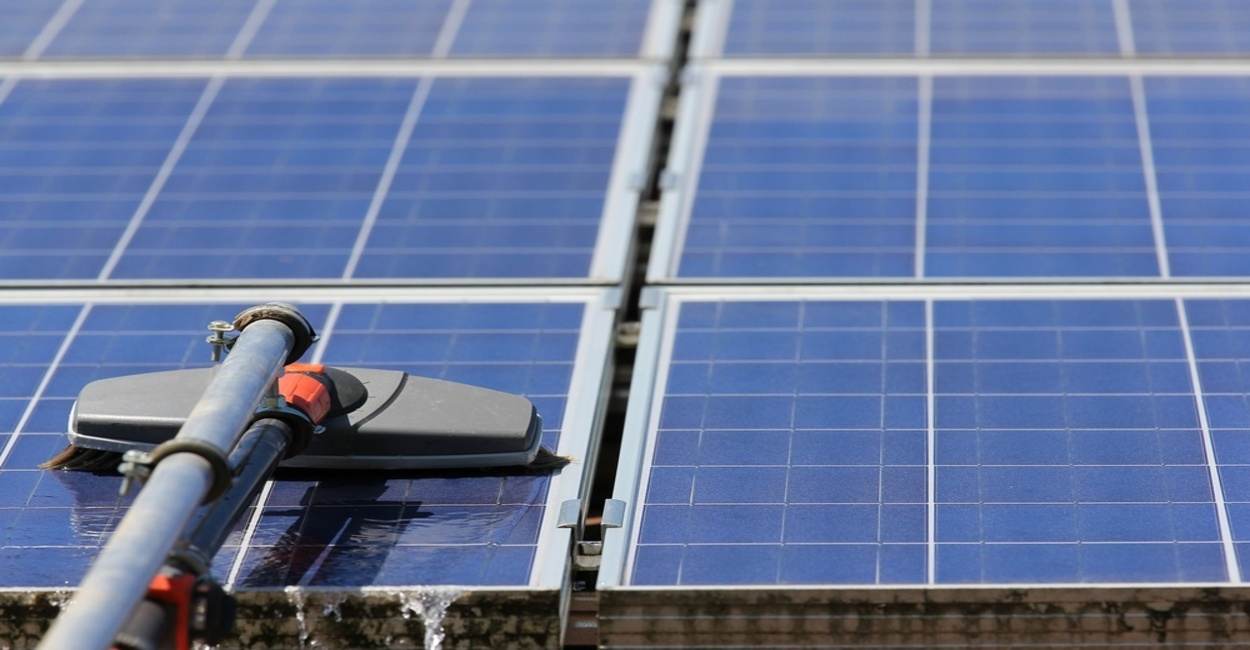If you decide to go solar, you should ensure your system works efficiently. That means keeping your panels clean and free from debris.
In most cases, this maintenance is pretty simple. However, a few things to watch out for may indicate your solar panels need some attention sooner than you’d like.
Check for Debris
The solar panels on your property will lose their efficacy if they are coated with mud, grime, or other obstructions that prevent them from adequately absorbing sunlight. As a result, your panels produce less electricity than they should in the winter and lower energy output throughout the summer.
The first step in keeping your solar panel assemblies clean is regularly checking for debris on them. It includes checking the solar panels and their wiring, junction boxes, and mountings.
Debris on solar panels can include leaves, bird droppings, and other organic materials. These can all damage the surface of your solar panels, reducing their effectiveness and potentially causing them to fail.
Generally, solar panel maintenance should be cleaned at least twice a year to remove the buildup of debris. However, if you live in a dry climate with lots of rain or have heavy soiling problems with your solar panels, plan to have them cleaned more often.
Clean the Panels
A solar panel’s efficiency drops when dirt, dry leaves, muddy smudges, and other debris accumulate on its surface. These extra-dirty areas block the sunlight from reaching one or more of the 60 individual cells, reducing their ability to absorb energy from the sun and generate electrical current.
It happens even when a solar panel’s electronics are working correctly. Debris can also cause the glass of your panels to crack.
Cleaning your panels regularly will help you prevent this issue. To prevent scratching the glass, avoiding using anything other than a garden hose would be ideal.
If you have a garden hose, spray each panel carefully from the top down and across its length. Scrub any remaining grime with a soft brush or squeegee, and rinse thoroughly to remove soapy water.
Cleaning is an essential and relatively harmless task that can boost your solar panel’s output. It’s a good idea to do it once a year.
Check the Connections
A solar panel can lose much power over time, so you should ensure it is appropriately connected. Check the connections for any damage, and if you notice something odd, it is best to call a professional to repair it.
The solar panel may not be the only component that needs to be checked, so check the rest of your solar system for problems like tripped breakers or blown fuses. You can also test the connection between the solar panel and your charge controller with a multimeter to see if there are any problems.
This step is not for the faint of heart, but it can give you a good idea of what’s going on inside the box and help you determine which components need replacing or repairs.
Check the Inverter
Inverters are the heart of a solar system, converting DC (direct current) power from your panels to AC (alternating current) for your home and business appliances. They can also be used to monitor the health of your solar system.
In the same way as a car’s battery, it’s essential to check your solar inverter regularly. A suitable inverter should have a digital display or an app on your smartphone to show you how much kilowatts (kW) of power the system generates at any one time and what it’s generated over the past few days or weeks (kWh).
The inverter can also tell you the wattage rating of your panels, so you can understand how well the system is performing and ensure you are using the maximum amount of energy from each panel. Inverters range from a few hundred to well over 5000 watts, so that you can choose an inverter based on your needs and budget.

